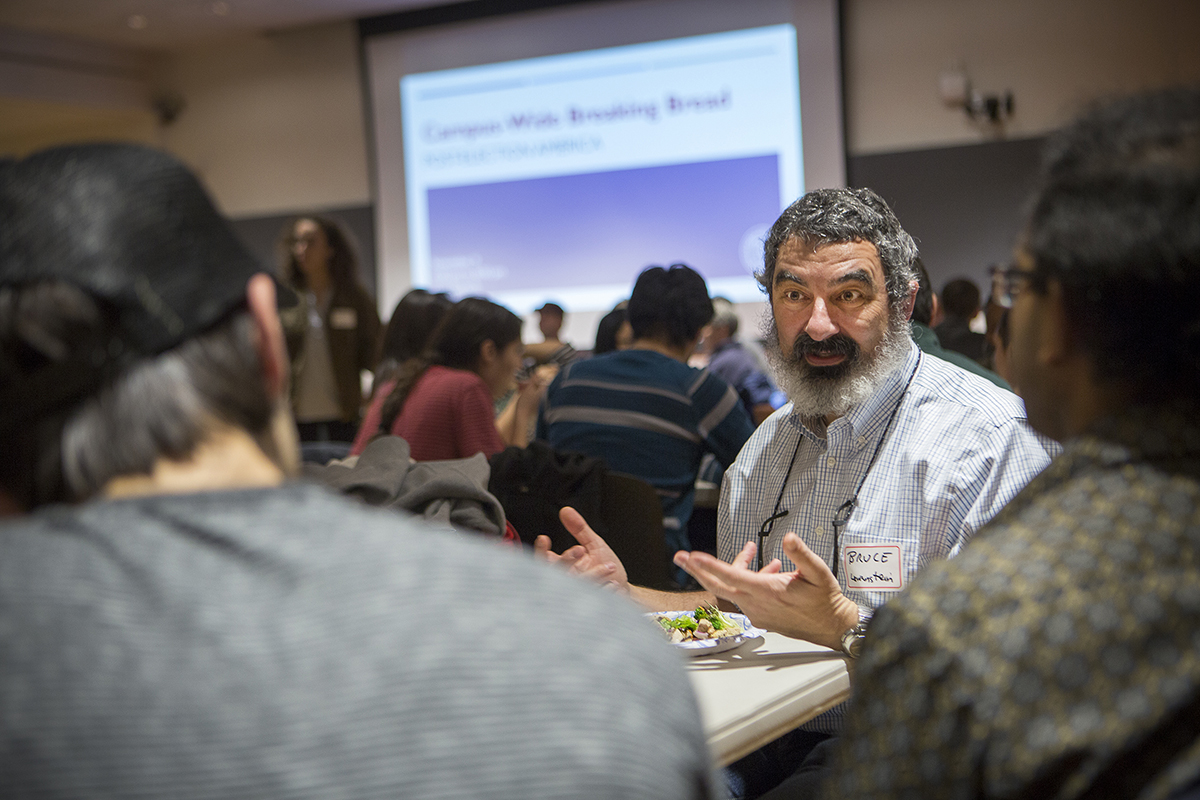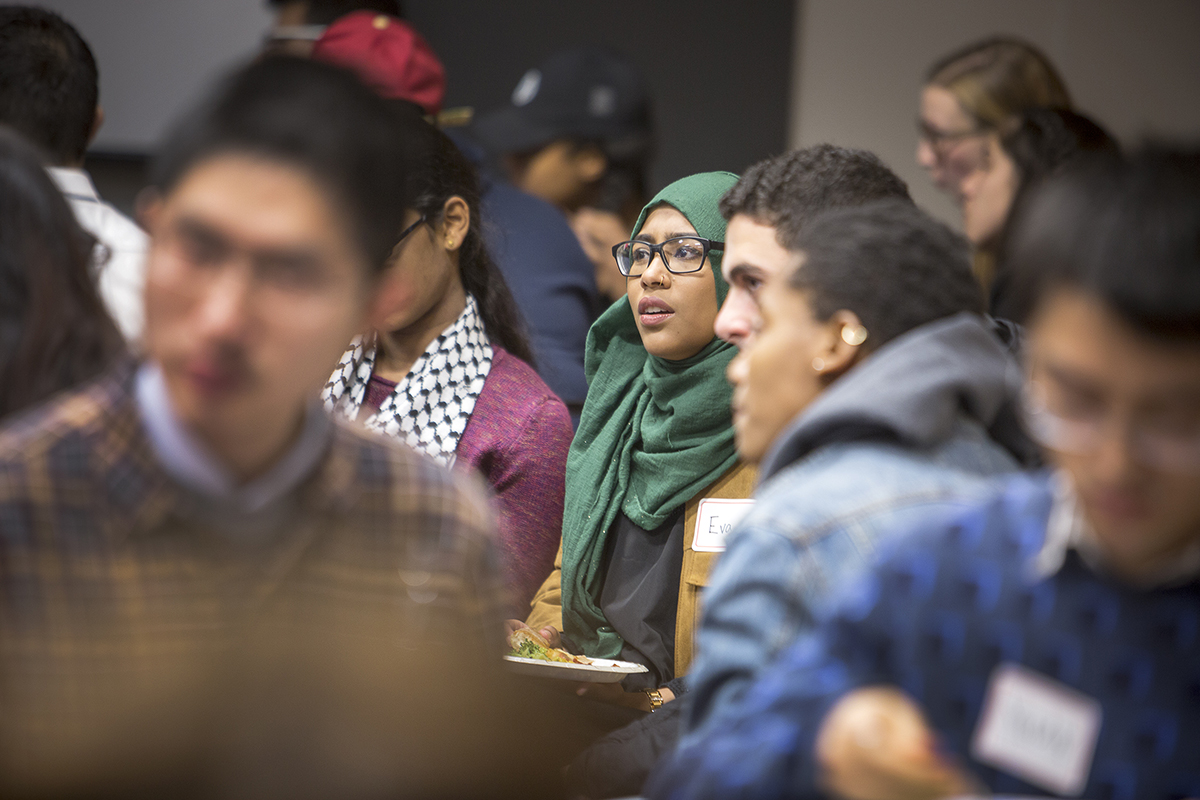Community breaks bread on heels of presidential election
By Justin Welfeld

A day after President-elect Donald Trump’s Nov. 8 victory, Cornell students, senior administrators, faculty and staff gathered for a meal while processing the election results as a community and discussing how to move on in post-election America.
The second communitywide Breaking Bread dinner of the year allowed 230 attendees to participate in guided, critical dialogue after a divisive and contentious election season. The event was held in the Biotechnology Building.
Renee Alexander, associate dean of students and director of intercultural program, began the discussion by noting the “rhetoric and vitriol of the primary campaign,” and urged students and staff to “listen, talk and learn.”
With a trained facilitator guiding group discussion, students and staff helped each other digest the uncharted reality facing the country. Equating their sense of social despondency to the days following the Sept. 11 attacks, attendees at one table discussed what they perceived as a step backward in social progress.
People at other tables shared their disillusionment with the political process and the current structure of the U.S. political system. In one group, participants reached a consensus that they prioritized social policy over fiscal policy and that they worry for the social repercussions of the Trump presidency.
Two students studying environmental engineering feared Trump’s denial of global warming, not only for the health of the earth but also for their job prospects upon graduation. Others shared concerns for the future of the health care system.
Attendees also expressed disappointment that someone facing sexual assault allegations could be elected, and that they perceived blatant sexism as influencing the election. A Christian participant expressed disapproval with the role of megachurches endorsing Trump in the election. Other participants who felt targeted by Trump’s nativist rhetoric expressed their fears for themselves and their families.

While participants overwhelmingly expressed their discontent with the election results, many believed it is important to understand the factors that made the electorate vote as it did. Although many attendees expressed concern for the next four years, many expressed hope in the strength of community.
“I think that people who were involved were able to create a shared understanding of the campus environment right now,” said facilitator Hadar Sachs ’17.
With so many emotions in the room, participants said it was a surreal experience to process this historical event in the Cornell “echo chamber” where the vast majority of the population is reacting the same way.
In his concluding remarks, Ryan Lombardi, vice president for student and campus life, said: “It’s not about a political issue – the thing that is on my mind is a human issue; [we need] to move forward in a culture and community of support.”
Justin Welfeld ’20 is a writer intern for the Cornell Chronicle.
Media Contact
Get Cornell news delivered right to your inbox.
Subscribe